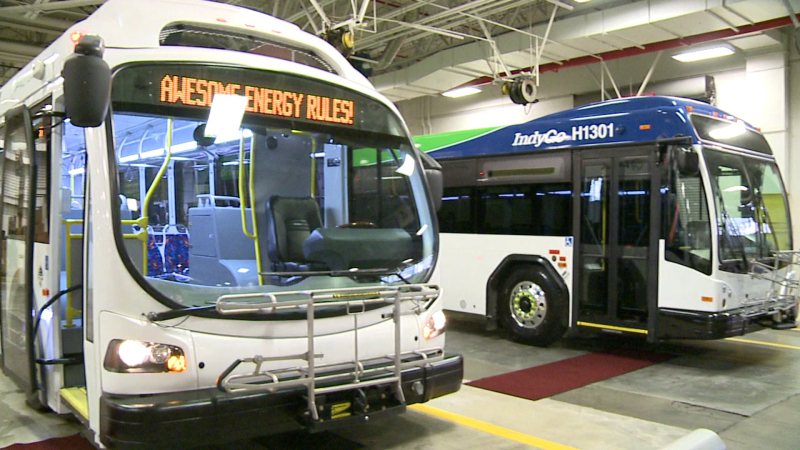IndyGo suing Julia M. Carson Transit Center architect, AECOM

INDIANAPOLIS — The Indianapolis Public Transportation Corporation (IPTC) — which operates IndyGo throughout Marion County — is suing AECOM, the architect of the Julia M. Carson Transit Center in downtown Indy.
A complaint filed Friday indicates the IPTC began working with AECOM on the Julia M. Carson Transit Center project in 2013 and 2014. According to the lawsuit, AECOM USA Inc. is a company “engaged in the construction industry as, among other things, an architectural and engineering design firm.”
AECOM’s website indicates the business is headquartered in Dallas.
The work AECOM did for the IPTC pertained to the design and plan for the Julia M. Carson Transportation Center. The IPTC is suing AECOM because the construction drawings, plan and specifications for the project were “inadequate, inaccurate and defective.”
In the lawsuit, the IPTC claims AECOM failed to properly account for the amount of archaeological work necessary to complete the project. In its final design plans, AECOM designated $6,675 for archaeological monitoring.
Per the IPTC’s complaint, AECOM only included five days’ worth of archaeological monitoring in its project plan. According to the lawsuit, before construction began, “AECOM concluded that the likelihood of archaeological discoveries warranting fieldwork was low so no further investigation was warranted.”
The IPTC claims AECOM’s alleged assertion was improper because it had been supplied with maps dating back as far back as 1887 before the project began. The maps and previous investigations indicated the proposed site for the Julia M. Carson Transit Center — which is located at 201 E. Washington St. — has housed different structures from the 19th century on.
The IPTC’s complaint also reports that geotechnical investigations revealed the site had “extensive urban fill” like brick fragments and wall and foundation remnants.
The IPTC also alleges that AECOM did not suggest any methods to further investigate the site — like test trenches or ground-penetrating radar — for historical artifacts.
Per the complaint, because the IPTC is regulated by the Federal Transit Administration (FTA) and other agencies, it must abide by certain regulations. One of the rules the IPTC must adhere to mandates construction sites to be archaeologically monitored when historical materials are discovered.
According to the IPTC, construction and excavation operations at the site began on Nov. 5, 2014. The plan provided to the construction contractor — which was created by AECOM — still only included an allowance of $6,675 for archaeological monitoring.
The IPTC reported that, almost immediately upon excavation, it was determined the site’s soil was not suitable for the project AECOM had drawn up. Archaeological materials were also found on the site.
The soil and archaeological problems slowed construction. The project was initially expected to be finished in October 2015. Instead, it was completed in February 2016.
The IPTC alleges that the delays, extra archaeological monitoring, and soil problems caused the project’s price tag to increase by more than $4.7 million.
The IPTC claims AECOM is liable for the budget overage because it “failed to properly evaluate and interpret all of the information laid out in front of them.”
The IPTC believes AECOM violated the contract they agreed upon because they “ignored all the red flags, and in so doing deprived IPTC of multiple opportunities to make timely, informed decisions on how and when to proceed with the project or even proceeding with the project at this location,” among other things.
In the lawsuit, the IPTC requested that AECOM pay its legal fees and cover the damages it incurred by moving forward with AECOM’s project design. The IPTC will also seek additional relief from AECOM, though it has not specified how much more money it will request.
As of this article’s publication, no additional information on the litigation had been made available.

Comments are closed.